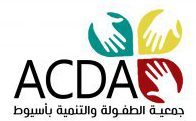Community schools' start
24521 student in Assiut
719 Student in Sohag
450 Student in Qena
165 school in Assiut
15 school in Sohag
15 School in Qena
301 in Assiut
30 in Sohag
30 in Qena
19623 in Assiut
330 in Sohag


Development Stages of the community school
Learning Environment
Curricula




Teachers\Facilitators
In 2015, the ministry of Education issued a decision that the teacher must be a graduate from faculty of Education or a bachelor degree and an educational diploma as well as she should be aware of the new teaching methodologies. Therefore, 96 female-teachers enrolled in the open education to have higher education, improve their teaching abilities and get a better in understanding and teaching new curricula.
Training for teachers
In 1995, the hired teachers\ facilitators received an intensive training before start working then refresher training during their work.
In 2015, training became a criterion for selecting the teachers.
The intensive training
Refresher training
Refresher training is implemented for raising the efficiency and effectiveness of the teachers in the school administration. It is implemented for the teachers to meet the training needs which is determined through assessment and Mentors recommendations.
Weekly training
The weekly training is implemented by the Mentors of the Ministry of Education for explaining the weekly school curricula and how it should be delivered to the students, how to warm up the children through activities “Alarkan time”, the common children psychological problems and how to handle them as well as discussing the teachers in the pros and cons that appear during field follow-up to schools.
Development training
ACDA also raising the capacities of the teachers and develop their skills in order to represent the association in their communities and be a source of awareness. Consequently, they receive training workshops about many topics such as Positive discipline, explore your potential, communication skills. The training is conducted according to the training needs assessment for each teacher.




Community schools’ activities
Summer activities
ACDA is keen on opening the schools in summer after the final exams, for 3 days weekly, to invest the energies of the children through useful recreational activities and attractive enjoyable means that help in forming the child’s personality and developing his\her talents. Besides, raising their health, social, cultural awareness, conducting sports exercises and preparing for the next year through revising lessons.
Comprehensive maintenance for community schools
By activating the social participation, the schools’ needs of maintenance are identified and a comprehensive maintenance of the schools is carried out each year before starting the new semester. World Food Organization, TDH, Save the Children are all participated in supplying the schools with computers, datashow and tablets for teachers.
Nutrition
Under the slogan “Food for Education”, World Food Program has provided monthly nutritional food basket for all students who attend 80% of the school days each month.
Communication between family and school
The continuous communication between parents and the school is essential for the sake of the children and for ensuring a successful educational stage for them, so ACDA added a parenting awareness program in the villages. The parenting awareness program aimed at raising the awareness of parents of children enrolled in community schools and the other community members around them of the importance of education and encourage them to attend regularly and continue their education, early detection of disability and proper nutrition for children , as well as teaching mothers craft activities.




Achievements
Decisions supporting education
ACDA succeeded in obtaining ministerial decisions for supporting the education process state reducing the age of admission to the normal age of compulsion in remote areas, Limiting the period of donation to 12 years instead of lifetime donation, raising the age of enrollment in the secondary stage to 22 years, community schools’ students who are enrolled in the prep and secondary stages in public schools are fee from paying the fees, community schools’ students are free from paying health insurance fees, aw well as hiring the facilitators of the community schools to be permanent employers for Ministry of education in 2009.
Rehabilitation of 15 schools for accreditation and quality
ACDA implemented an initiative for rehabilitating 15 community schools for having accreditation and quality. It worked on five aspects, school environment, teacher, learner, community participation, and sustainable professional development to improve the quality of the learning process, environment and outcomes as well as promote and spread the culture of quality. The initiative also aimed to coordinate with the accreditation and Quality Officers in the directorates of education to support the capacities of the target schools so they can carry out the self-evaluation. As a result, the teachers, community, and the directorates of education are now able to define the weaknesses and strengths of community schools, set monitoring plans, and improve the performance in the light of the national standards for the quality of community education.
Spreading the concept of active learning in a government school
Because of the ACDA’s experience in the community education sector, in 2006, the Governor of Assiut assigned to it the development of a public primary school to spread the concept of active learning through implementing training workshops for the teachers. Furthermore, training programs concerning inclusion in the special education school, parenting awareness and school maintenance were implemented. As a result, the governor of Assiut has generalized the concept of active learning inside 40 primary public school in Assiut.


Success Partners
Donors
Social Fund for Development – Ministry of International Cooperation – Sawiris Foundation for Social Development – Shorouq Misr Association, StarCare Egypt – Orascom Construction – Orange Egypt for Communication.
Community leaders
Village Affairs Committee- students’ parents – local community
Key partners
Ministry of Education – Health Insurance Authority
Community schools’ graduates


